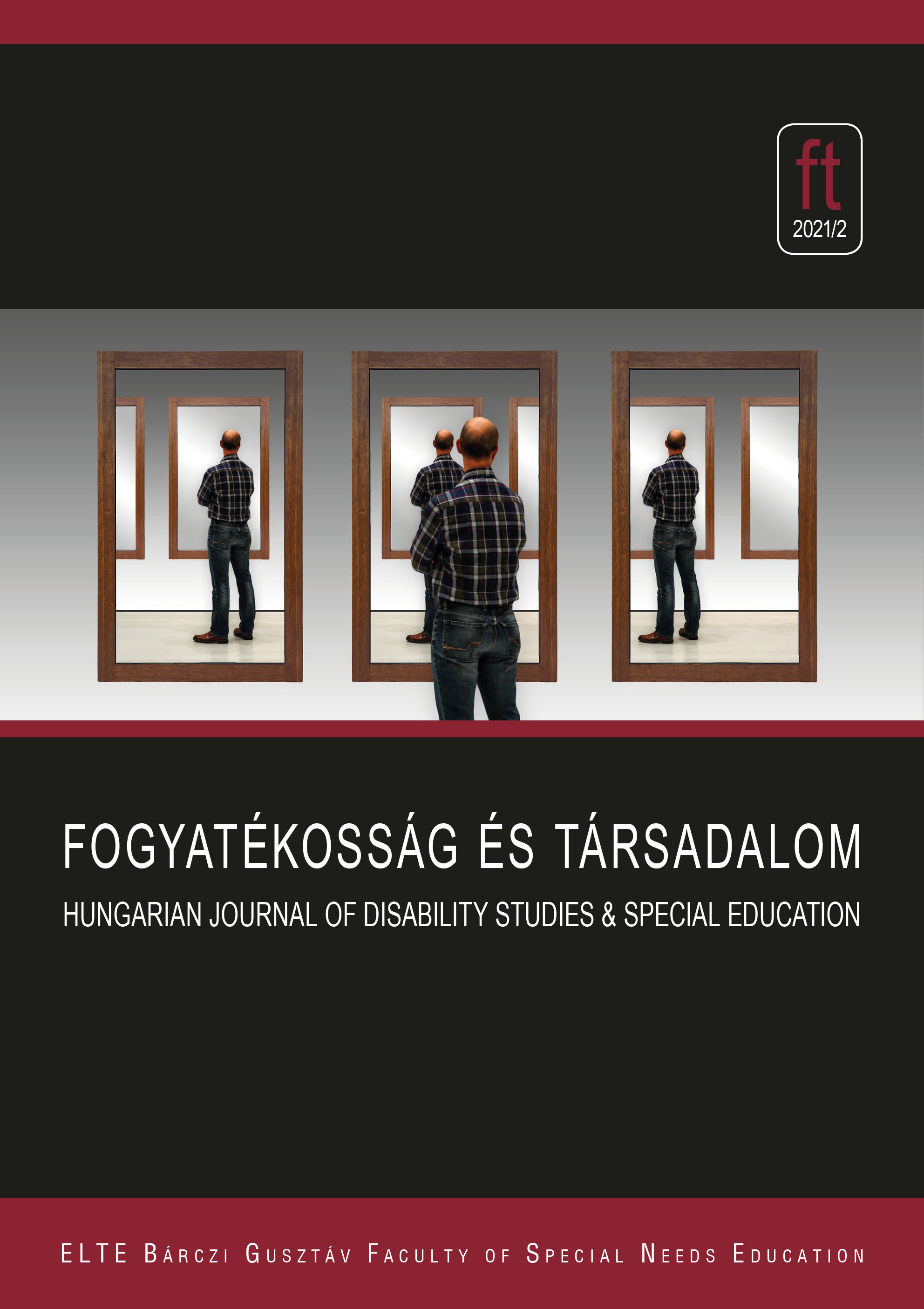Hoffman István : Editorial Preface
"First of all, I would like to greet the readers of Hungarian Journal of Disability Studies & Special Education (Fogyatékosság és Társadalom). As the new Editor-in-Chief of this prestigious journal, I would like to thank the great work of the founding Editorsin-Chief, in particular Prof. György Könczei. He had a vision of this journal, the... Read more
DOI: 10.31287/FT.en.2021.2.1
DOI: 10.31287/FT.en.2021.2.1

